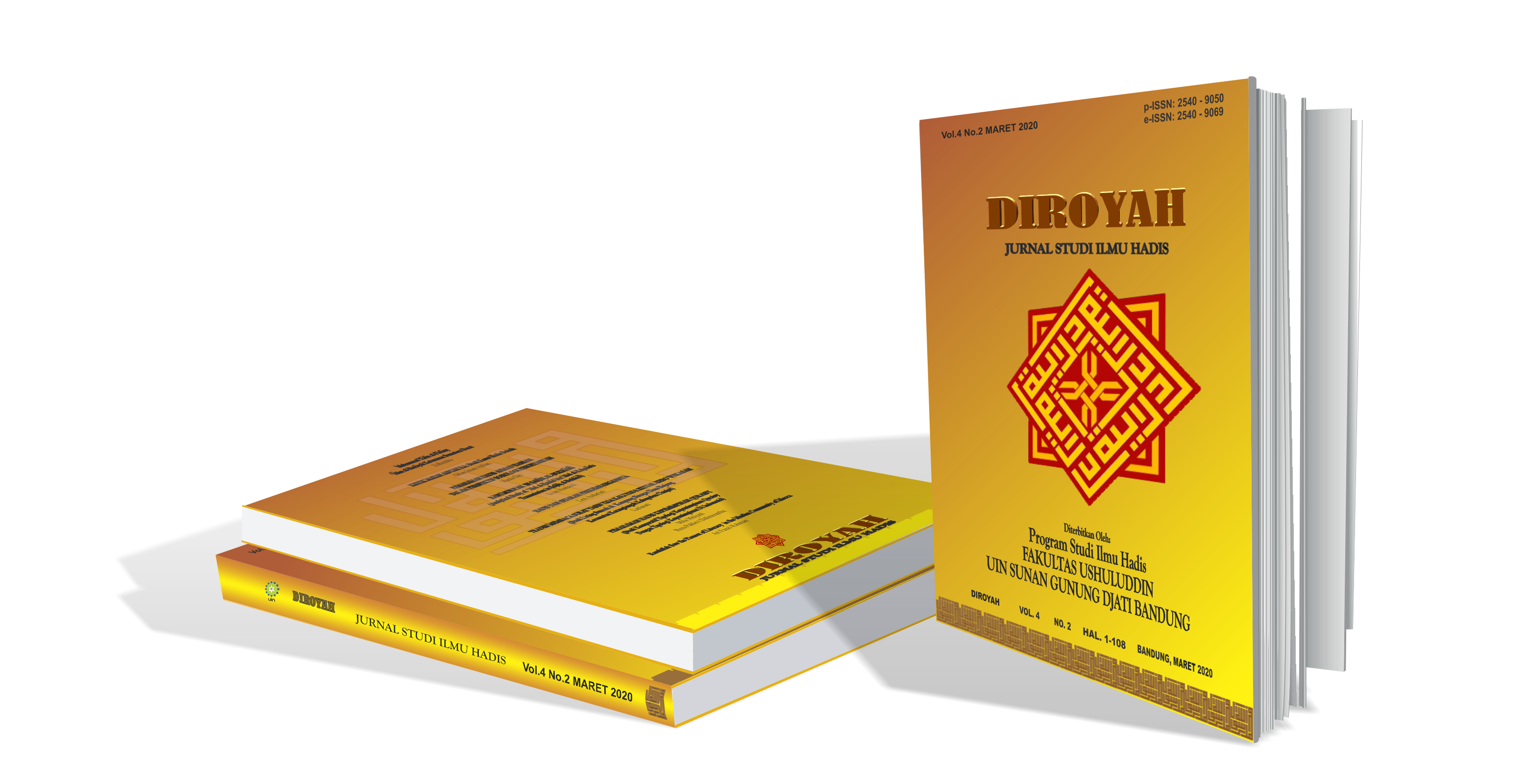Promoting Gender Equality and Empowerment: A Quranic and Hadith Perspective on Women's Roles in Islam
Main Article Content
Abstract
Article Details
Authors who publish with this journal agree to the following terms:
- Authors retain copyright and grant the journal right of first publication with the work simultaneously licensed under a Creative Commons Attribution-NonCommercial-ShareAlike 4.0 International License that allows others to share the work with an acknowledgment of the work's authorship and initial publication in this journal.
- Authors are able to enter into separate, additional contractual arrangements for the non-exclusive distribution of the journal's published version of the work (e.g., post it to an institutional repository or publish it in a book), with an acknowledgment of its initial publication in this journal.
- Authors are permitted and encouraged to post their work online (e.g., in institutional repositories or on their website) prior to and during the submission process, as it can lead to productive exchanges, as well as earlier and greater citation of published work (See The Effect of Open Access).
References
Abusharaf, R. M. (2001). The moral space of emergency medicine. Social Science & Medicine, 52(2), 261-271.
Ahmad, M. (2010). Women's Rights in Islam. International Journal of Humanities and Social Science, 1(11), 233-240.
Ahmed, L., & Matthes, E. H. (2012). Empowering women through Islam: Fatima Mernissi’s legacy of feminist Islamic scholarship. Journal of Feminist Scholarship, 2, 1-20.
Al-Bukhari, Abu Abdullah Muhammad bin Ismail. (1997). Sahih al-Bukhari. Beirut: Dar al-Fikr.
Al-Qazwainy, Abu Abdullah Muhammad bin Yazid. (2008). Sunan Ibn Majah. Beirut: Dar al-Fikr.
Al-Rasheed, M. (1996). Women and the State in Saudi Arabia. Middle Eastern Studies, 32(4), 469-490.
Alvi, N., & Naqvi, F. (2019). Portrayal of Women in Hadith Literature: A Critical Analysis. Journal of Islamic Thought and Civilization, 9(1), 79-96.
An-Naim, A. A. (2001). Dekonstruksi Syari’ah. Bandung: Mizan.
Barlas, A. (2002). Believing women in Islam: Unreading patriarchal interpretations of the Qur’an. Texas: University of Texas Press.
El-Guindi, F. (2008). Veil: Modesty, privacy, and resistance. Hamburg: Berg Publishers.
Engineer, A. A. (2011). Perempuan Dalam Syari‟ah: Perspektif Feminis dalam Penafsiran Islam. Jurnal Ilmu dan Kebudayaan Ulumul Qur’an. 3(5), 1-12.
Fakih, M. (1996). Membincang Feminisme Diskursus Gender Perspektif Islam. Surabaya: Risalah Gusti.
Freyer, B. (2001). Reinterpretasi Gender: Perempuan dalam Al Quran, HadiÅ dan Tafsir. Bandung: Pustaka Hidayah.
Gauda, A. R. (1995). The Role of Women in Islam: An Examination of the Rights and Obligations of Muslim Women in Islamic Law. London: Ta-Ha Publishers Ltd.
Hamka. (1996). Kedudukan Perempuan dalam Islam. Jakarta: Pustaka Panjimas.
Ladak, S. (2014). Feminism and Islamic Jurisprudence: The Politics of Interpretation. Oxford University Press.
Mernissi, F. (1991). The Veil and the Male Elite: A Feminist Interpretation of Women’s Rights in Islam. Basic Books.
Mir-Hosseini, Z. (2003). Gender and equality in Muslim family law: Justice and ethics in the Islamic legal process. London: I. B. Tauris.
Qaradawi, Y. (1994). The Lawful and the Prohibited in Islam. New York: American Trust Publications.
Ramadan, T. (2004). Western Muslims and the future of Islam. Oxford: Oxford University Press.
Serkan, Y. (2016). Women’s Role in the Transmission of Hadith. Journal of Women’s History, 28(1), 140-144.
Subhan, Z. (2006). Tafsir Kebencian: Studi Bias Gender dalam Tafsir Qur’an. Yogyakarta: LKIS.
Syuqqah, M. A. (1996). Tahrir al-Mar’ah fi Asr Al-Risalah. Bandung: Al-Bayan.
Umar, N. (2010). Argumen Kesetaraan Gender Perspektif Al-Qur’an. Jakarta: Paramadina.
Wadud, A. (1999). Qur’an and Woman: Rereading the Sacred Text from a Woman's Perspective. Oxford: Oxford University Press.
Wadud, A. (2001). Qur’an menurut Perempuan. Jakarta: PT. Serambi Ilmu Semesta.

